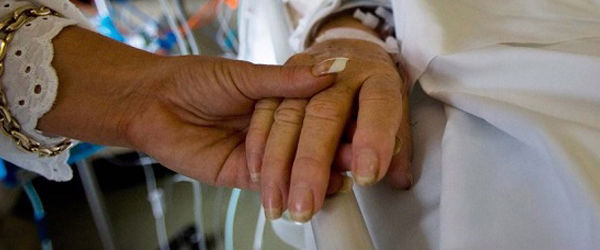I have a friend who likes to say, when asked if his religion was a crutch, “No, it’s more like a wheelchair.” His point was to acknowledge that no, he can’t fend for himself, and his faith in God does far more for him than prevent him from limping. In today’s Gospel reading Jesus compares himself to the gatekeeper for a flock of sheep, who cares for them and protects them. “I am the gate for the sheep,” Jesus says. “All who came before me are thieves and robbers, but the sheep did not listen to them. I am the gate. Whoever enters through me will be saved, and will come in and go out and find pasture.”From what I understand, sheep are among the most helpless creatures on earth. They need help finding food; they are nearly powerless to defend themselves against predators; they have a poor sense of direction and are easily lost. So it might not seem too flattering to be compared to a sheep. We don’t tend to think of ourselves as helpless, defenseless or lost. Nor do we like to think of ourselves as lame and in need of a crutch or a wheelchair. Well, I am frequently helpless, defenseless and lost. I lose sight of God easily. Even though he has promised to care for me and protect me, I wander off on my own, thinking I can care for myself. Why in the world would a vulnerable creature stray from his protector? Good question. If we think we can find a better way on our own, we risk finding ourselves alone and vulnerable. That is not what Jesus wants.So, if I’m more like a sheep than I’d like to admit, all the better that God is a good, patient, loving shepherd. The good news of the Gospel is that we have someone to guide, nourish and protect us. Certainly it’s in our best interests to stay close to our shepherd and rely on his wisdom and strength rather than our own.In the end, we are not called to be spiritually self-sufficient. We are challenged to acknowledge the reality that we are finite beings, somehow tethered to the physical world and rarely able to fully embrace the spiritual world of grace and joy. This is the world that Jesus calls us to embrace; he presents himself as a gateway to live without fear or want. If we think we can find a better way on our own, we risk finding ourselves alone and vulnerable. That is not what Jesus wants. “I came that they might have life, and have it more abundantly,” he says. Jesus does not call us to lower our expectations for love and happiness. He came that we might live the richest, most meaningful lives possible. He is the doorway to abundant life in the presence of the unconditional love of God.Bill Peatman writes from Napa. He may be reached at [email protected].(/cite>{gallery width=100 height=100}gallery/2011/0513/peatman/{/gallery}

